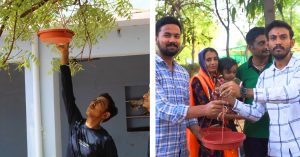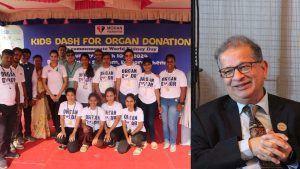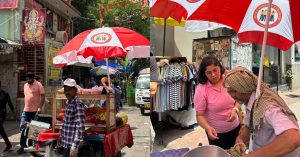With Just Rs 100, Donate A Pair of Slippers & Help Mirzapur Labourers Survive Scorching Heat
With just Rs 100, you can donate a pair of slippers to help labourers in Mirzapur endure the scorching heat, as they struggle with harsh working conditions and financial constraints. Your contribution will also support the empowerment of women in rural Uttar Pradesh who manufacture these slippers. Join The Better India's campaign #DonateASlipper today.
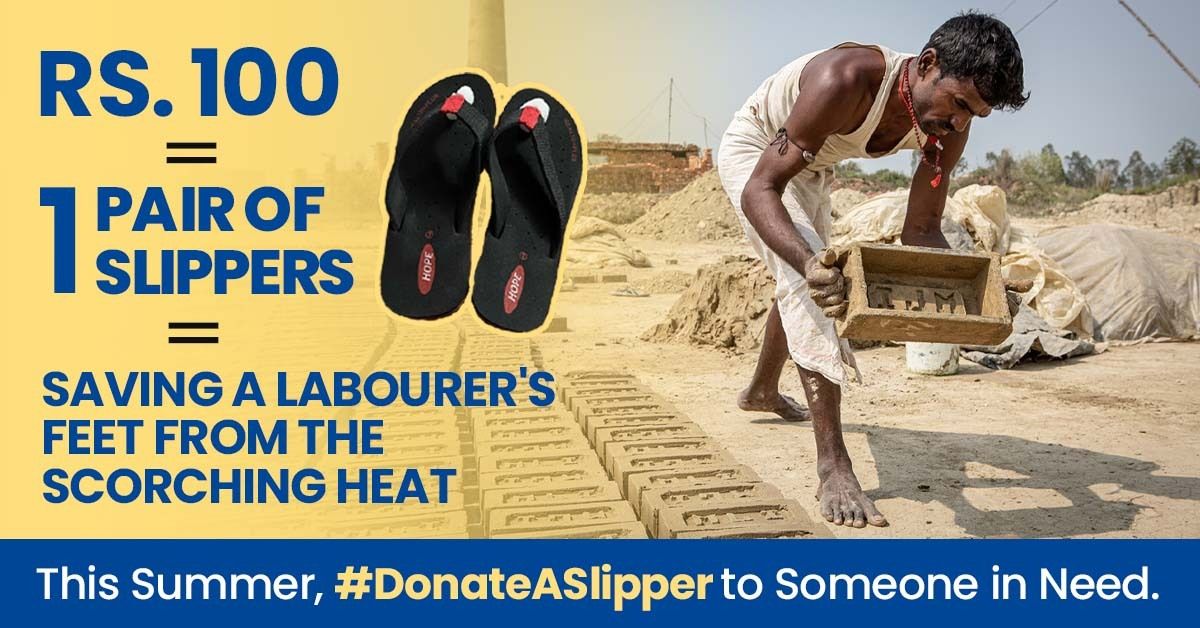
Summer hasn’t been kind to India this year.
In Uttar Pradesh, particularly, the villagers bear the brunt as the scorching sun competes with increasing humidity. On any given day, as the heat peaks towards noon, people can be seen rushing indoors, shielding their faces with a spare cloth and crouching under the shade of trees. But the villagers of Mirzapur’s Bahari Jungle Mahal cannot afford to pause their lives. Irrespective of the rising mercury levels, they must make their way into the forest where a long day of cutting wood and stones awaits.
For instance, take Shyambabu. The 70-year-old’s routine hasn’t changed much over the years. His day begins with going into the forest and chopping wood, followed by working in a stone quarry towards the afternoon. In the evening, Shyambabu sells the wood that he has cut, earning a meagre Rs 100 on a good day and Rs 80 otherwise.
Through the years, Shyambabu has remained unfazed by adversity. Years ago he devised a hack to deal with the thorny shrubs and stones that lay along his path into the forest. “I make a bandage out of leaves and rope, and wear it on my feet,” he smiles. “This helps me walk through the forest.”
The innovation, as ingenious as it may be, is a temporary shield. By midday, a burning sensation beneath his feet alerts Shyambabu that his ‘self-made slipper’ has fallen off. He must now endure the unforgiving hot ground.
Through the years, his feet have developed calluses and corns, and turned black. One might wonder why he doesn’t purchase a pair of slippers.
He laughs. “What did you say, again?” Shaymbabu has never heard of such a thing.
After explaining what a slipper is and how it will help him, he says, “I earn Rs 80 a day. Should I buy slippers or fill my stomach with the money?” The rhetorical question echoes the struggles endured by these labourers; problems that worsen as summer progresses.
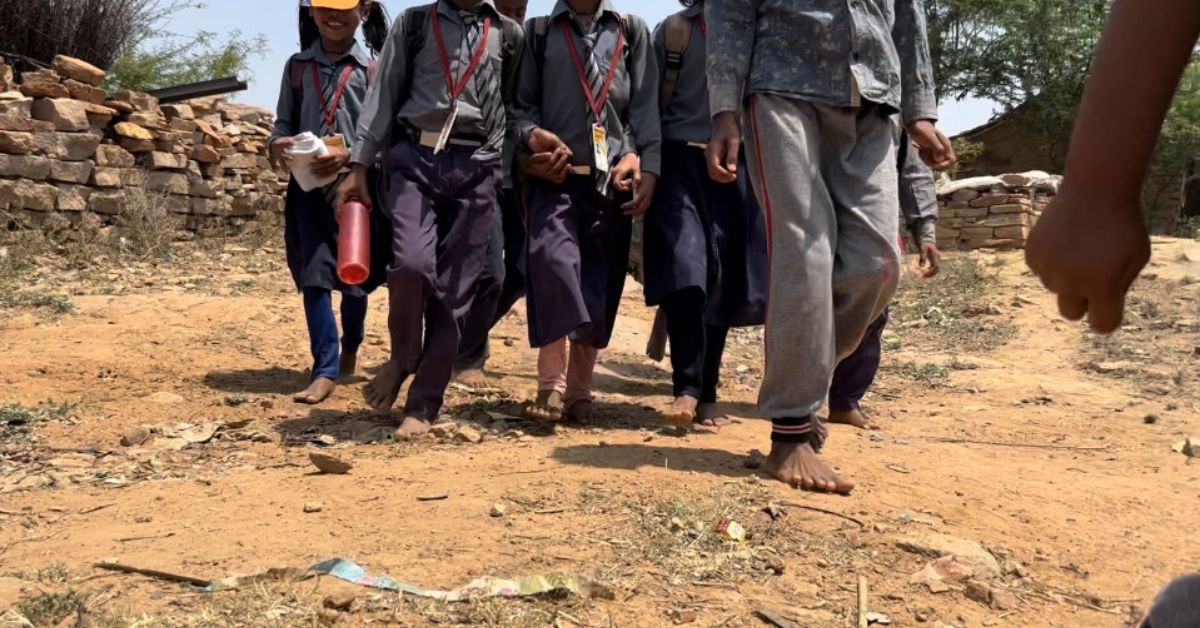
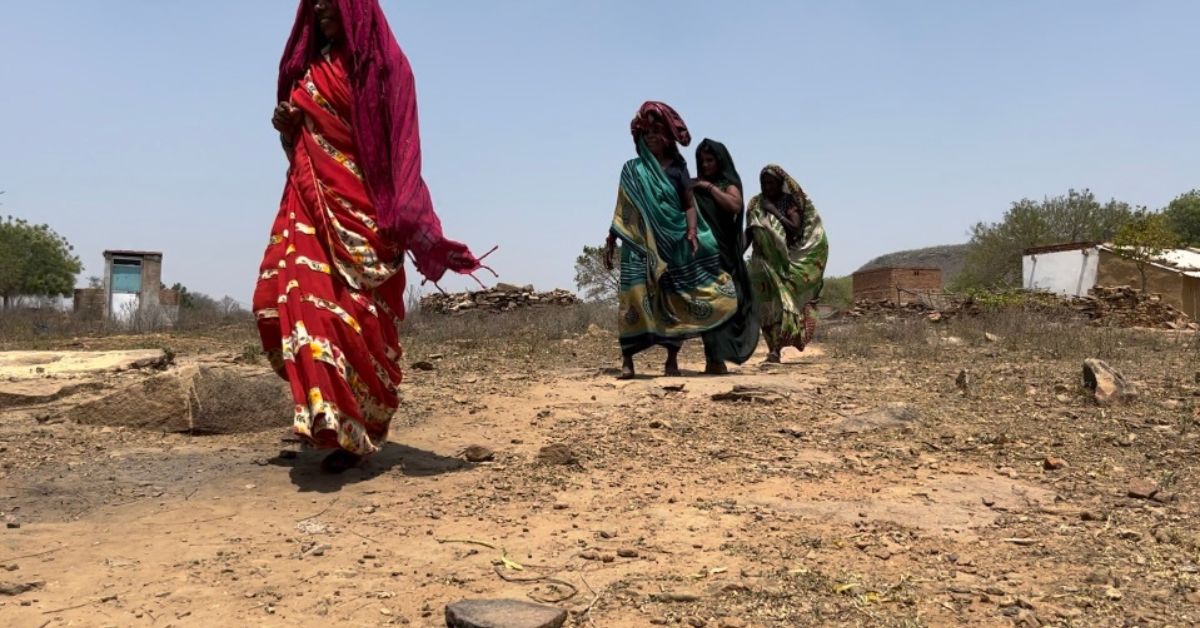
It is evident that the idea of shoes is a distant dream for these people. And a Banaras-based law graduate Divyanshu Upadhyay wants to change this narrative. When Divyanshu started the Hope Welfare Trust along with his friend Ravi Mishra in 2015, it was meant to be a platform that facilitated change in the districts of Uttar Pradesh through education, women empowerment, health, and sanitation.
But today, it is a movement with students from universities — such as Kashi Vidyapeeth, Banaras Hindu University (BHU), and Delhi University (DU) — leading change from the front. This summer, Divyanshu and his team are attempting to bring respite to the daily wage labourers of Mirzapur and Sonbhadra through their slipper drive.
But this is easier said than done. And Divyanshu needs your help.
Bring hope to someone with just Rs 100
“If you were given a pair of slippers, would that help you?” the question is directed towards Vikas, a 25-year-old labourer who works at the stone casting site along with Shyambabu. He pauses before answering, “It would make me very happy. Thorns wouldn’t hurt my feet anymore and the burning would stop. I would be able to walk without getting scared that stones will pierce my feet.”
It is heartbreaking to hear these labourers’ stories. And Divyanshu, who has been watching them closely since a young age has been a witness to their plight. “The terrain here is harsh. There are a lot of mountains and stones that these people have to navigate every day when they go to work in the mines, the forest, and stone casting sites.” Despite the hard and long working hours, they do not make much money and the strained finances go into buying food.
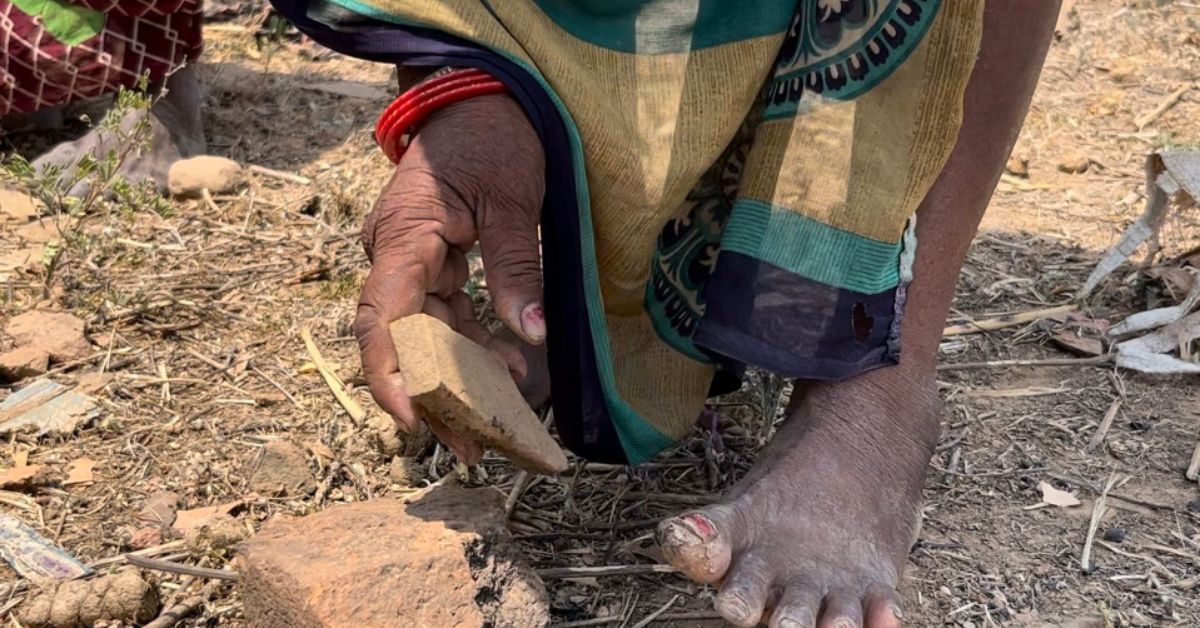
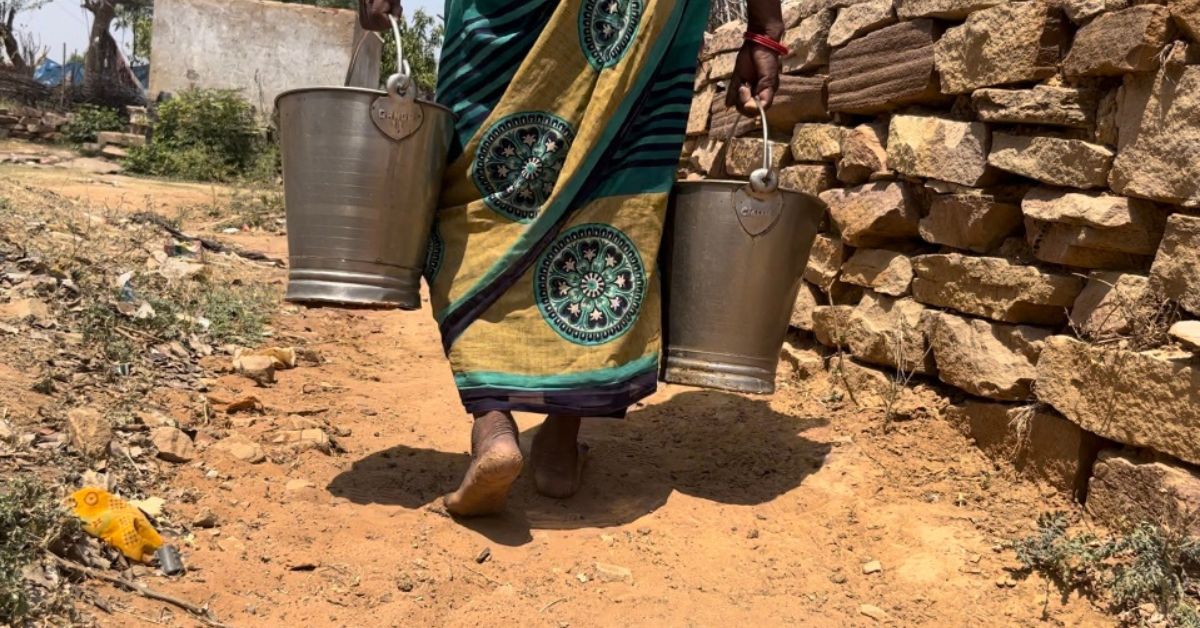
Slippers are a luxury.
This is where you come in.
“A pair of slippers costs Rs 100. With the donations, we will be able to buy slippers and distribute them to the labourers and their children,” Divyanshu adds. While the men who work in the quarries will benefit, the slippers will also be a ray of hope for children here who go to school barefoot, and their mothers who walk miles to fetch water from the well.
“We find it tough to stand on bare ground for a few minutes. Imagine doing this for hours, every day, for years. If our slippers can make a difference in their lives, it will be worth it.” Divyanshu adds that the slipper drive will not just be a boon for the labourers, but also for the village women who manufacture these slippers in a small factory in Mirzapur’s Deura.
These women belong to the ‘Green Army’ — an arm of the Hope Welfare Trust that is empowering the women of Uttar Pradesh’s villages, including Khushiyari, Deura, Bhadrasi, Ramsipur and Jagardevpur. Making slippers is how they earn their livelihood and your donation will help them sustain.
An army of changemakers
If rumour has it that any woman in one of Uttar Pradesh’s villages is facing abuse at the hands of her husband, word is sent to the Green Army. True to their name, the army comprises women dressed in green saris carrying jute bags. Within no time, they can be seen parading to the house in question and taking matters into their own hands.
Through their intervention, Divyanshu says there has been a palpable change in Uttar Pradesh’s rural areas. Through the years, the Green Army has grown from 25 women to its present total of 2,200 women spread across 250 villages of the state. Commending their work, Divyanshu shares the story of its inception.
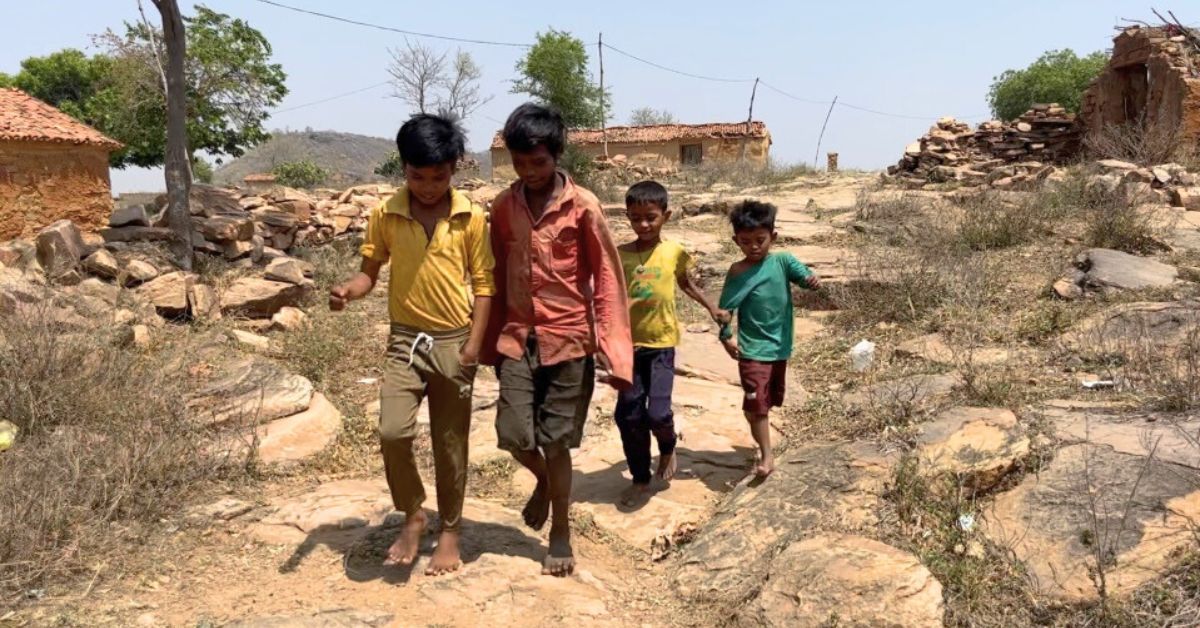
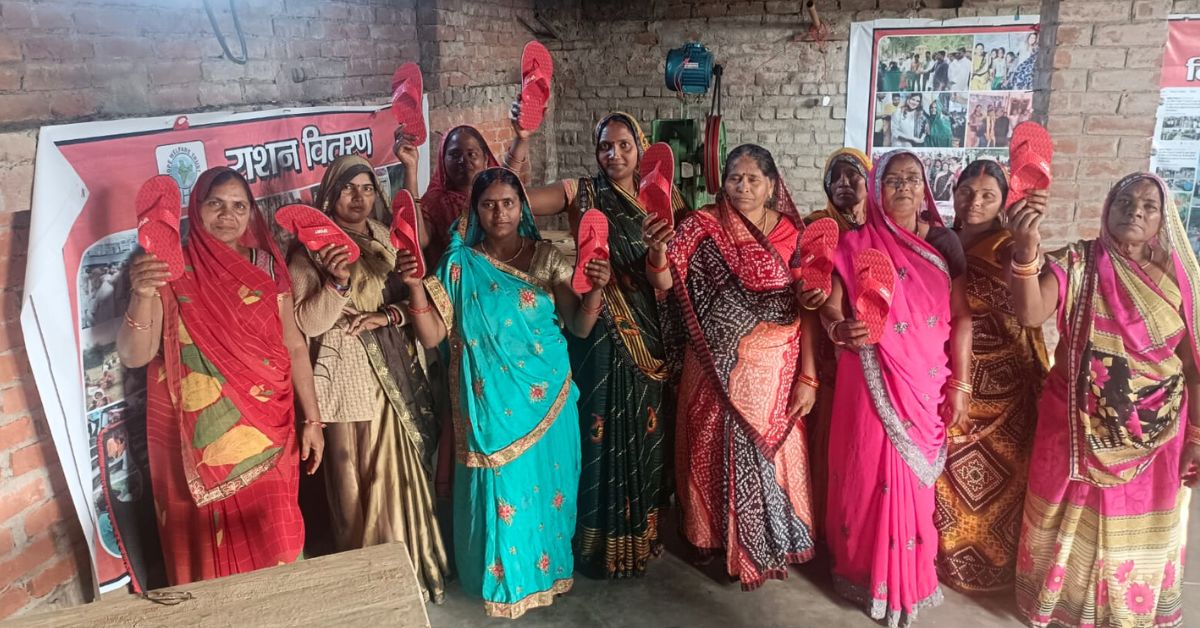
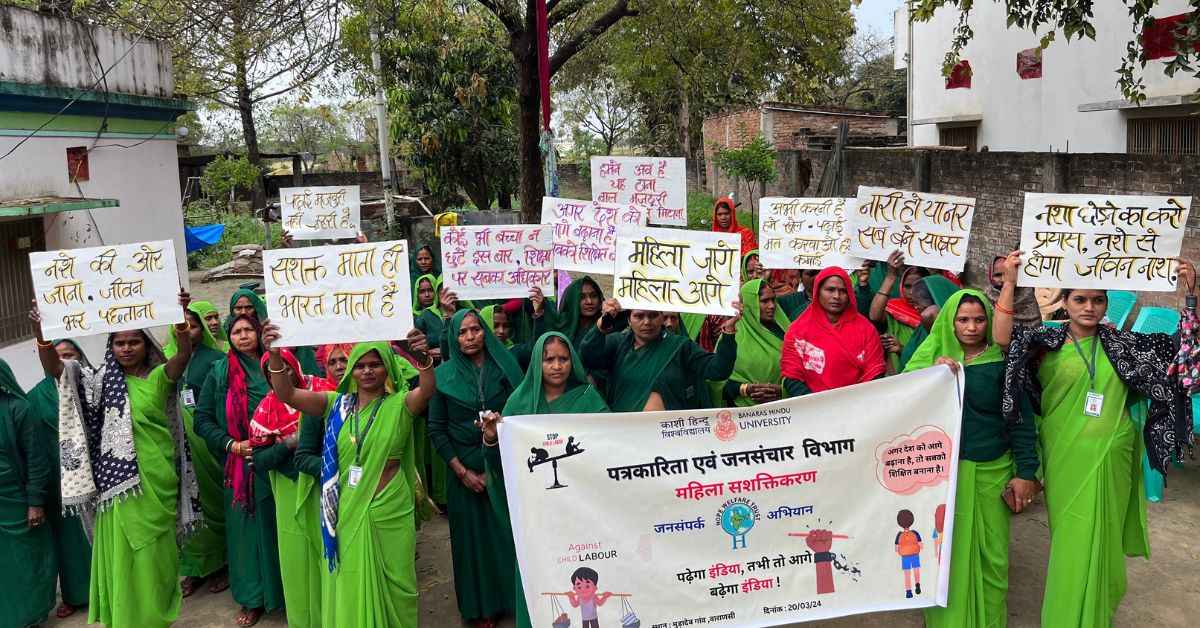
“When we would go to these villages to teach the children, it was sad to see that they were more interested in gambling, alcohol, begging, and selling balloons on the roadside. So, we started a slew of different projects under Hope Welfare Trust to address education, sanitation, and bring electricity to the villages.”
It was during this time that the team learnt how helpless the village women felt. Their husbands were alcoholics and would beat them up. Simply creating change wasn’t enough. To ensure the change was sustained, Divyanshu and his team figured that they would have to give the women agency. This is how the Green Army was born. And the villages embraced this idea.
In the months that followed, the women were taught how to lodge a complaint in case of domestic abuse, open their own bank account, and given self-defence training. They began working in tandem with the police force to bring law and order to the village.
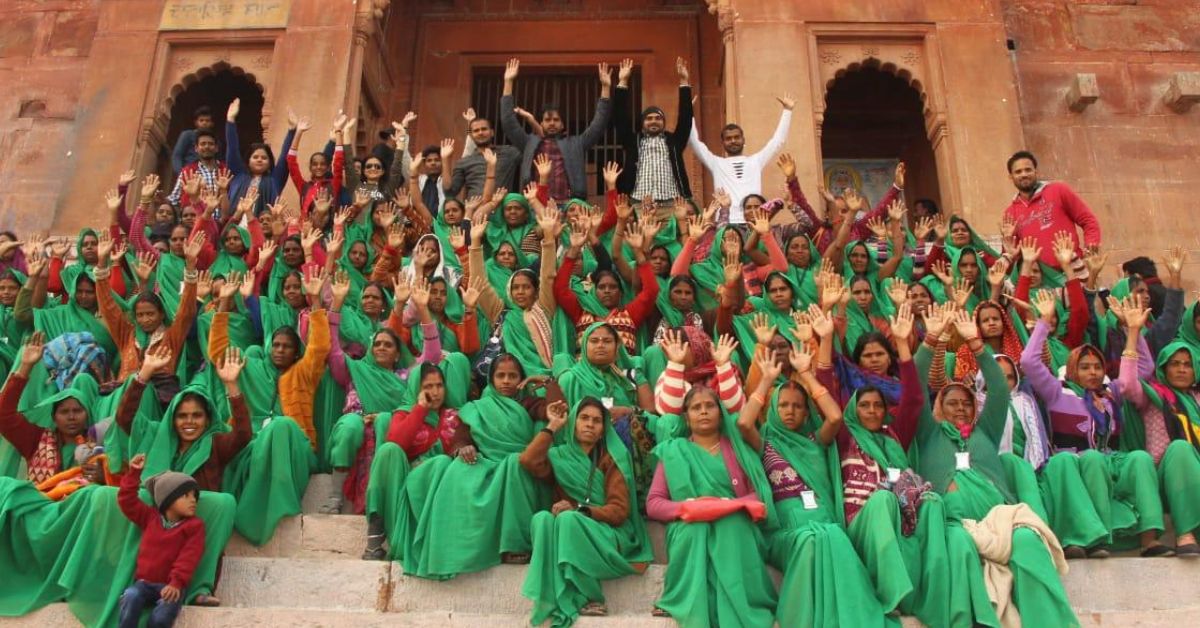
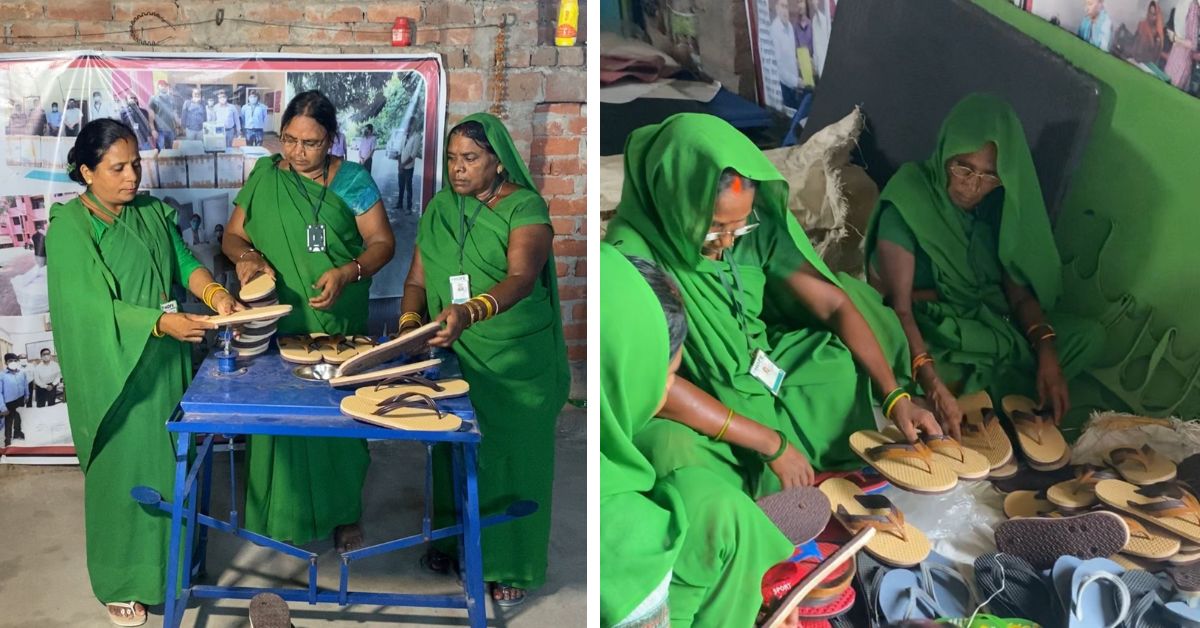
To strengthen the message of empowerment, the Hope Welfare Trust started centres where these women could channel their skills into stitching, plate making, bottling, etc, to earn a livelihood.
Elaborating on these centres, Divyanshu says, “There are 40 women who are earning through the stitching centre at Varanasi, while 12 women are currently employed at the plate-making factory. There is also an ongoing gangajal project wherein the women filter water from the River Ganges, bottle it, and sell it to vendors. Then there is also the shoe factory in Deura.”
Here, a group of 15 women are involved in assembling the slippers, packing and selling them to vendors for Rs 100 to Rs 120 a pair. It is precisely this factory that the shoes for the labourers will be purchased from.
As another afternoon sets in Uttar Pradesh, a lone labourer walks into the forest, hoping for an antidote to the burning ground. Miles away, a woman dressed in green works hard at putting together a pair of slippers at a factory on the outskirts of town, hoping orders will pick up this month.
Your donation has the power to make both their prayers a reality.
Edited by Pranita Bhat
If you found our stories insightful, informative, or even just enjoyable, we invite you to consider making a voluntary payment to support the work we do at The Better India. Your contribution helps us continue producing quality content that educates, inspires, and drives positive change.
Choose one of the payment options below for your contribution-
By paying for the stories you value, you directly contribute to sustaining our efforts focused on making a difference in the world. Together, let's ensure that impactful stories continue to be told and shared, enriching lives and communities alike.
Thank you for your support. Here are some frequently asked questions you might find helpful to know why you are contributing?






